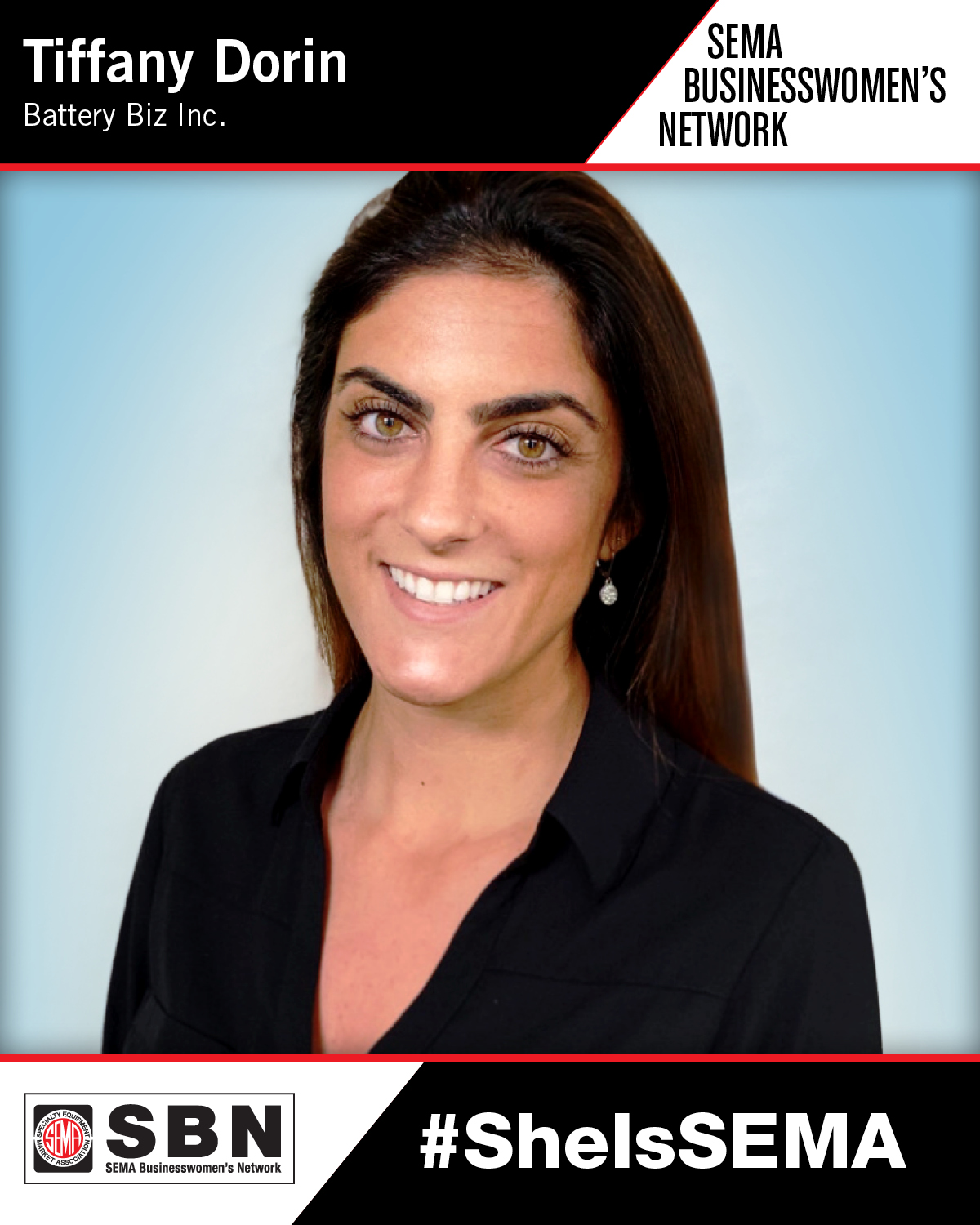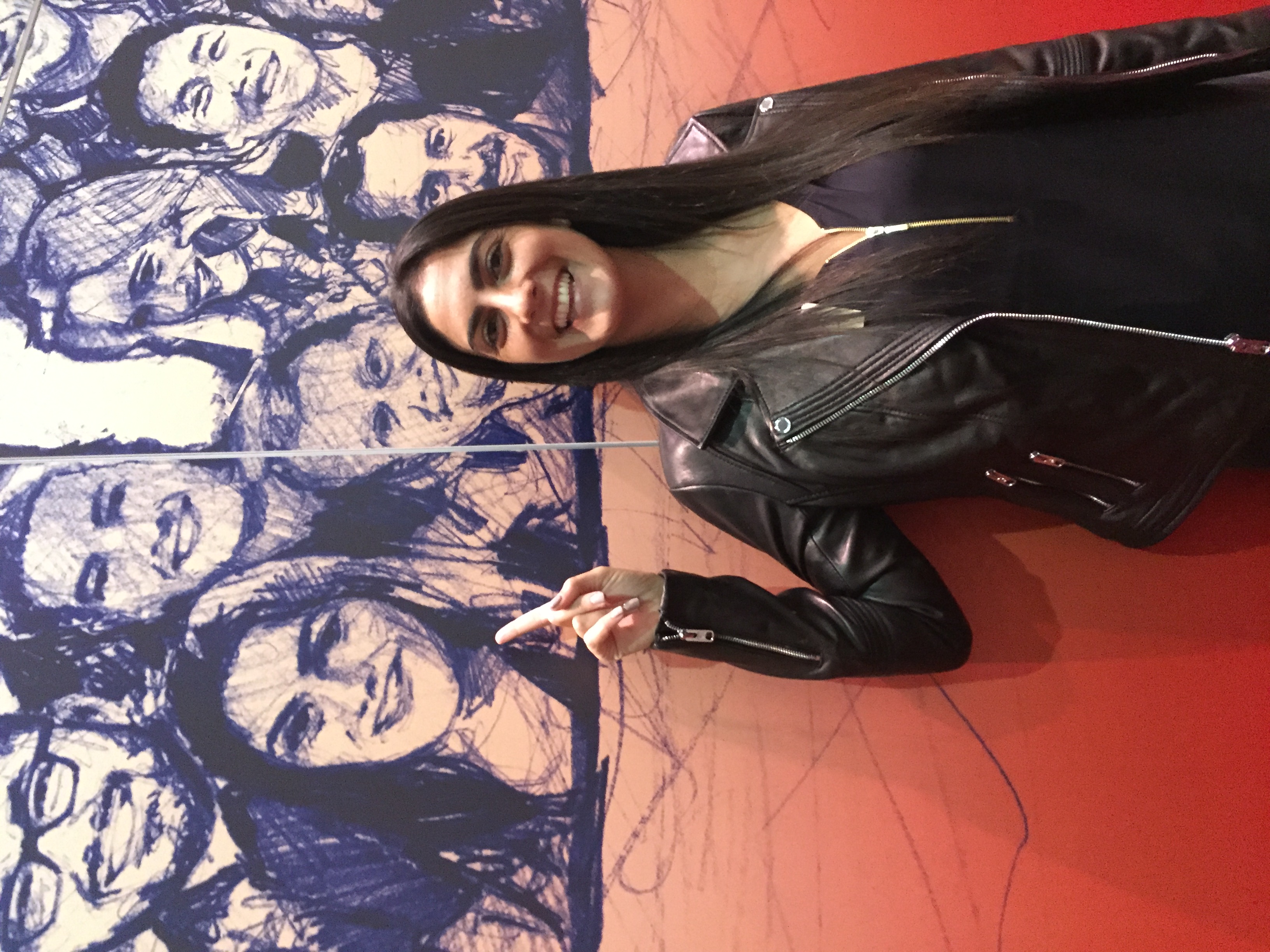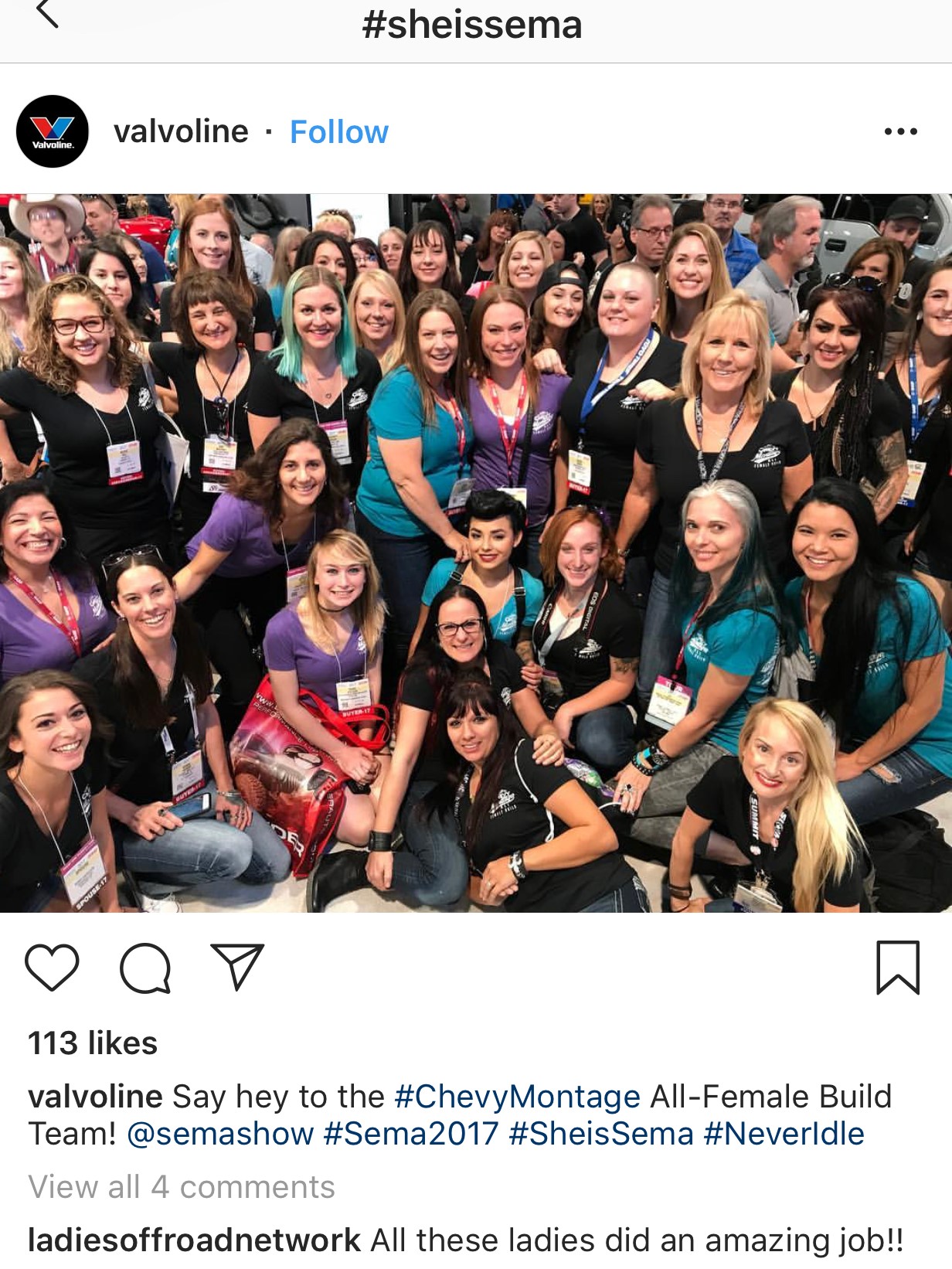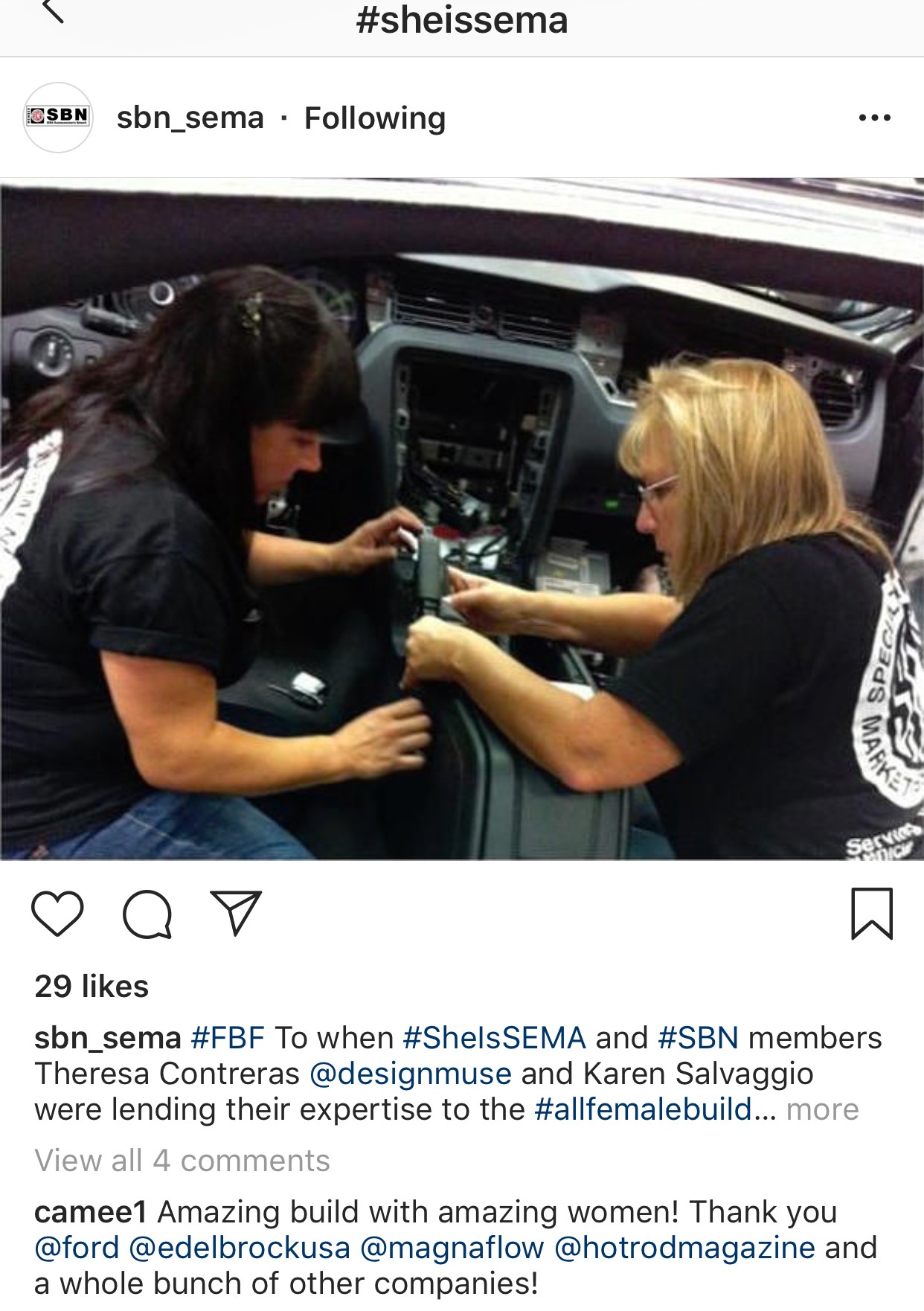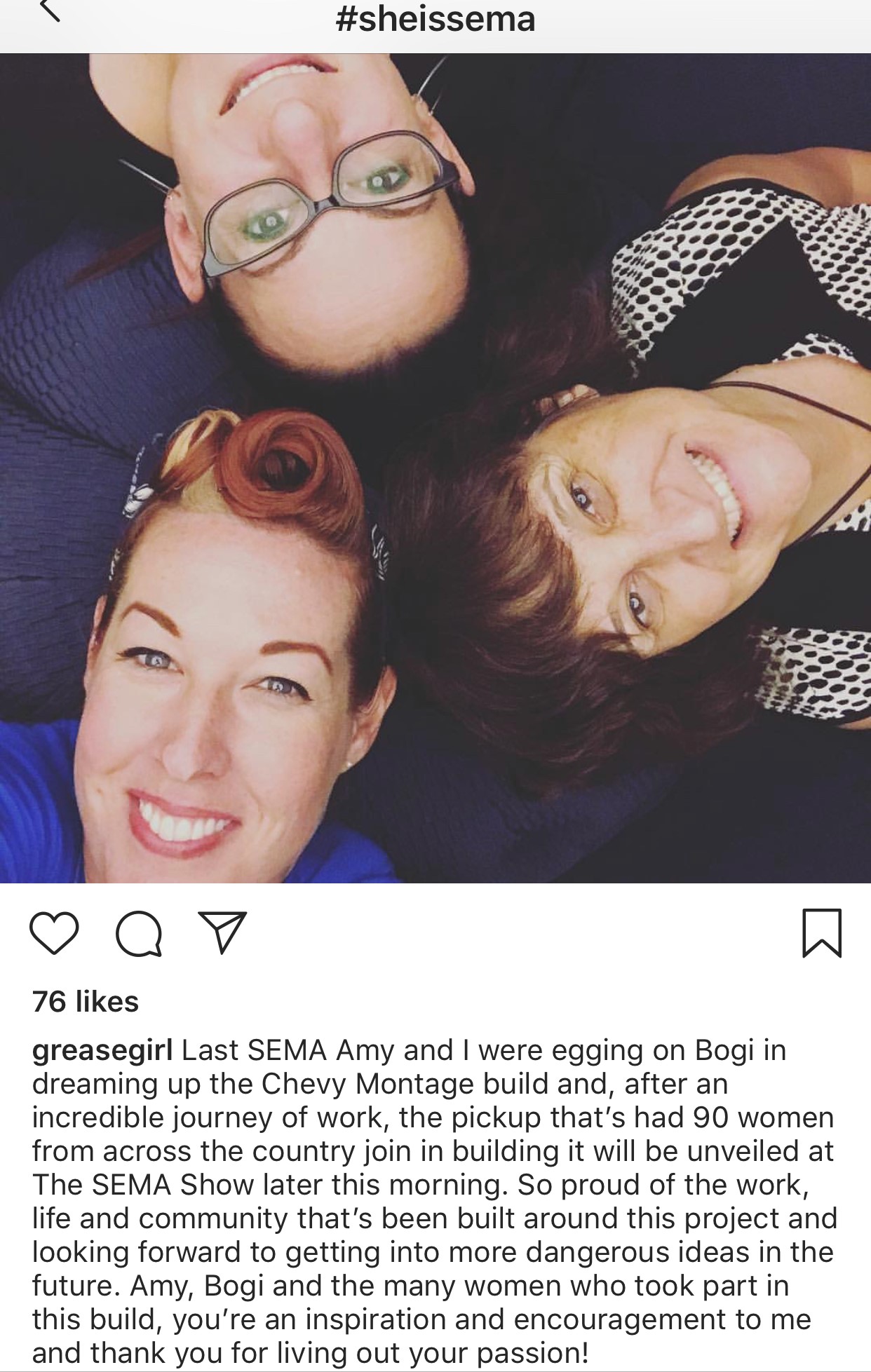TIFFANY DORIN
The SEMA Businesswomen’s Network (SBN) named Tiffany Dorin as the latest #SheIsSEMA Spotlight Member. Dorin is a National Sales Manager at Battery Biz Inc., an employee-owned automotive aftermarket company focused on the design, manufacturing and marketing of high-quality power products.
Dorin has been with the company for two years and attributes following up and following through, relationship building, and her desire to learn as the three qualities that got her where she is today. Learn more about Dorin in her Q&A with SEMA.
SEMA: How many years have you been in the industry and what was your first industry job?
Tiffany Dorin: I've been in the automotive aftermarket industry for almost 16 years now, starting at a small local tint and accessories/motorsports shop. I had no idea what I was doing, but quickly learned that I loved being in sales and eventually moved on to work for the company I was buying my product from, Keystone Automotive!
SEMA: Being a woman in the industry, what have been your biggest challenges and accomplishments? Do you have a specific situation that comes to mind?
TD: My initial experiences as a woman in this industry were less than ideal and being very young didn't help. They first started when I worked retail, and customers (men) would come into the shop and look around for a male to help them. When I would ask if they needed help, they would ask if there was someone else there that could help. It took proving to them that I knew what I was doing (usually by one of the techs coming up front to tell them that I would be able to help) before they would even give me a chance. When I went to work wholesale, in a call center, men would blatantly tell me to "put a man on the phone" when I answered their call. Being a sales assistant at the time, their male salesperson would then transfer their call back to me after telling them that I would be the best person to help them. They eventually began asking for me instead and I was eventually promoted.
Those experiences sum up the biggest challenges: credibility, respect, appreciation, and equality. Women have to put in so much extra work and proof in order to gain others' trust and respect in this industry (or in general) before they are seen as equals to their male counterpart. The reward and biggest accomplishment is being in a place of mutual respect, knowing it has been fully earned. Though I appreciate the progress made over the last 10-15 years, we have a long way to go, and I am excited to be a part of it.
SEMA: Who are your role models or mentors in the industry? How have they helped you along the way?
TD: My first boss at the local retail shop believed in me. I walked in there not knowing a single thing about automotive (I had only even been driving for a couple years), but he provided me the tools, resources and patience to learn.
Since leaving there, I have worked with and for amazing people who also believed in me and coached me along the way. Fred Petrivelli and Chance Mercure (Keystone) were two of the best bosses I've ever had and I will forever be grateful for their support and guidance. My current mentor from a sales perspective is my current boss, David Apsley. His experience and knowledge is astounding to me and in a short period has taught me so much.
When I worked in the call center, I remember women like Jenna Jefferies, Lee (McGuire) Riser, Melanie (Hellwig) White, and Laurel Dasher coming in for product training and I thought it was amazing to have these accomplished, intelligent, confident women to learn from and watch grow in the industry. I knew then that I wanted to be like them.
SEMA: What is the best career advice you have received? How has this advice helped you either professionally or personally?
TD: The best career advice I have received is to be willing to take risks. If you know me, you know that my comfortable processes are calculated, strategic, structured, and more often than not on the cautious side. The encouragement to be more open to taking risks has helped me become comfortable with the possibility of a setback or failure in making tough decisions. I often stop to ask myself, "What's the worst that could happen if I take this risk?" And it usually isn't all that bad.
SEMA: Have you always wanted to work in the automotive industry? What keeps you here?
TD: I had no idea what I was getting myself into when I started working at the small local automotive shop. I thought it was just a temporary part-time job just out of high school and never imagined being here over 15 years later. I wouldn't claim to be passionate about vehicles necessarily, but my passion for the industry has and continues to grow because I truly love what I do and who I am surrounded by. More than anything, the people and their contagious drive and passion keeps me here.
